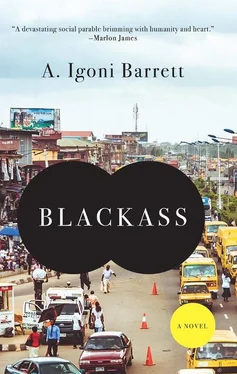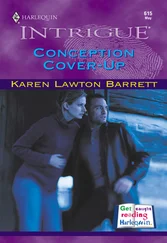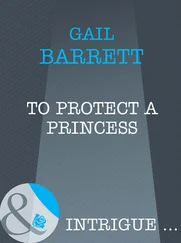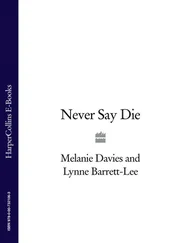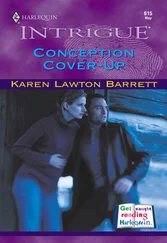‘Yes,’ Furo said fiercely. ‘Yes, it is.’
Arinze gave a slight shrug as he spoke his next words. ‘Second question then. Do you have any ID that confirms you’re Nigerian? Like a passport or driving license?’
‘I don’t,’ Furo said, relieved it was the truth, and as Arinze watched him in silence, he added, ‘Actually, I have an old passport, but I left it in a place I can’t go back to.’
Arinze took a long drink of coffee. ‘We can’t risk any allegations of illegally employing a foreigner, so you’ll need to get a passport before you start with us. Is that OK?’
‘Yes,’ Furo answered. He hadn’t the faintest idea of how to go about getting a passport, but his joy would not be spoiled by a predicament in his future. A future that hadn’t existed just minutes before. A strong breeze from the open French windows fanned his excitement, gave him the courage to ask, ‘And your third question?’
Sip, replace mug, and rub hands together. Arinze was a creature of methodical action, Furo could tell. Already he felt his heart filling with respect for the man he would soon call boss.
‘When was the last time you read a book?’
At this question, Furo’s heart skipped, and he strained to keep his disappointment from showing. The truth had served him thus far in answering Arinze’s questions, but the truth this time was inimical to him. And what was the truth? He read newspapers for job announcements. And on his smartphone he read Facebook and Twitter, blogs and news websites, ephemera of the World Wide Web … and not forgetting the countless rejection emails from all the companies he had applied to for jobs. The whole truth and nothing else was that he’d read no books since 2007, not since he got the pain in his neck from studying for his final examinations.
Furo had dreaded this question ever since he saw the newspaper advert announcing a salesperson position with a company that sold business books. He had applied for the job despite his misgivings, after first altering his résumé to add ‘reading’ to his hobbies, and he was ecstatic when he received the email inviting him for an interview. It was only his second invitation in three-plus years of submitting job applications. On the same day he got the email, he decided on the book he would use as his cover. I love Things Fall Apart , he’d planned to say, it teaches us about our culture, where we as Africans are coming from. But in fact he chose that book because he was forced to read it in junior secondary and still remembered the storyline. Even the opening line: Okonkwo was well known throughout the nine villages and even beyond. And in his head the voice of Mr Zikiye, his English Literature teacher, still droned: The white man in this book is a symbol of progress. Okonkwo fought against the white man and lost. Progress always wins, that’s why it’s progress. Now tear out a sheet of paper, you have a test.
The test that now faced him was as difficult as any he’d encountered in school. He was almost certain he wouldn’t get the job if he spoke the truth. For how could he, when the last book he’d read was a biochemistry textbook for his BIC 406 exam? But if he told a lie and was caught out by Arinze, forget the almost, he was certain he would lose the job. Suddenly oppressed by a full bladder, Furo wriggled his sweating toes in his shoes, and soon began to think not only of what to answer but also of how to explain why it took him so long to answer. When Arinze’s chair squeaked, Furo looked up, his thoughts in a whirligig, his body tensed for disappointment. He saw Arinze put down his mug, and after rubbing his hands together, he heard him say:
‘But will you read the books we sell?’
‘Oh yes, I will!’ Furo responded, his voice cracking with eagerness. ‘I promise I will.’
‘Good man,’ Arinze said. ‘So let’s get down to details. The position I’m offering you is Marketing Executive. You’ll be my point man, my big gun, the person I send out to bring in important clients. It’s high-level marketing — you’ll have to dress formally for meetings. The company will provide you with an official car and a driver. How does that sound so far?’
Speechless, Furo nodded, and Arinze continued.
‘The marketing office is empty, so you’ll have it to yourself. Do you own a laptop?’
Furo shook his head no.
‘But you know how to use one?’
He nodded yes.
‘It’s company policy that all employees must own their own laptops. We’ll buy you one, but you’ll have to pay back from your salary over six months. Is that OK?’
‘Yes.’
‘Perfect. Now your salary. Executive pay at Haba! starts at eighty thousand a month. That’s what you’ll earn at first. But you’ll also get a percentage on your sales. For sales of up to five hundred books, you get two point five per cent. For sales of five hundred to a thousand, you get …’
While Arinze reeled off percentages, Furo was calculating his good fortune in decimals. This offer of employment was the first he’d ever got, and a salary of eighty thousand naira was eighty thousand times better than nothing. It was also fifty thousand more than he’d expected, as the vacancy he’d applied for, the salesperson job, paid thirty thousand naira. Even better, this position came with a car and driver, free transportation, meaning more money for him. With all that money in his hands he wouldn’t need anyone. He could feed himself, buy new clothes, start his life for real, and still have enough left over to save towards renting an apartment. Eighty thousand naira wasn’t just money, it was freedom. For the first time since waking that morning, Furo had no doubts about the path to take.
Arinze had fallen silent, and now Furo could ask the question burning his tongue.
‘When do I start?’
Arinze reached for his open laptop, then tapped the keypad and stared at the screen, his eyes reflecting the plasma glow. ‘Today’s the eighteenth,’ he said. ‘How about the first Monday in July? That’s July second. You can start then.’
‘I’ll be here,’ Furo said. And in a voice hoarsened by emotion: ‘Thank you.’ On impulse he jumped to his feet and stretched his hand across the desk, and his eyes, catching a movement, swung to the glass below. He was still staring at the white face staring back at him when Arinze took his hand. ‘I like that, a businesslike approach to business,’ he said, nodding with approval. ‘I have a strong feeling I made the right decision. I’m looking forward to you proving me right.’ He walked round the table, placed his hand on Furo’s shoulder, steered him to the door, and threw it open. ‘Go well, Mr Wariboko.’
When the mind is at rest the body shouts its demands. Furo Wariboko, back on the streets of Lagos, now realised how hungry he was. Weak with it, his head aching, stomach juices churning, his breath reeking with it. He considered his choices. He had eight hundred naira left over from the money he’d borrowed from Ekemini, and that amount would just about cover a meal at Mr Biggs, the cheapest of the fast food chains. He was reluctant to spend everything. Thus far he had refused to pop his jubilant mood by thinking about where to go next, where to sleep tonight, but somewhere behind the wall of his mind he knew there was no going back.
No choice then. He had to eat in a roadside buka.
The roadway by which he strolled was jammed with traffic, cars crawled along at a pace that turned the drivers’ faces tight with frustration, okadas tore through gaps that even the bravest hawkers hesitated to enter, and petrol fumes from overheated engines thickened the air. Like oases on a desert caravan route, child vulcanisers and apprentice mechanics loitered in roadside lean-tos that offered scant shelter from today’s sunshine and tomorrow’s rainstorms. Exhausted vehicles dotted the roadside, some with bonnets opened to let out steam from gasping radiators. A riot of honking assailed the ears: short warning honks, long angry honks, continuous harrying honks: a language as universal as a scream. But in Lagos, overused. The clamour was deafening.
Читать дальше
